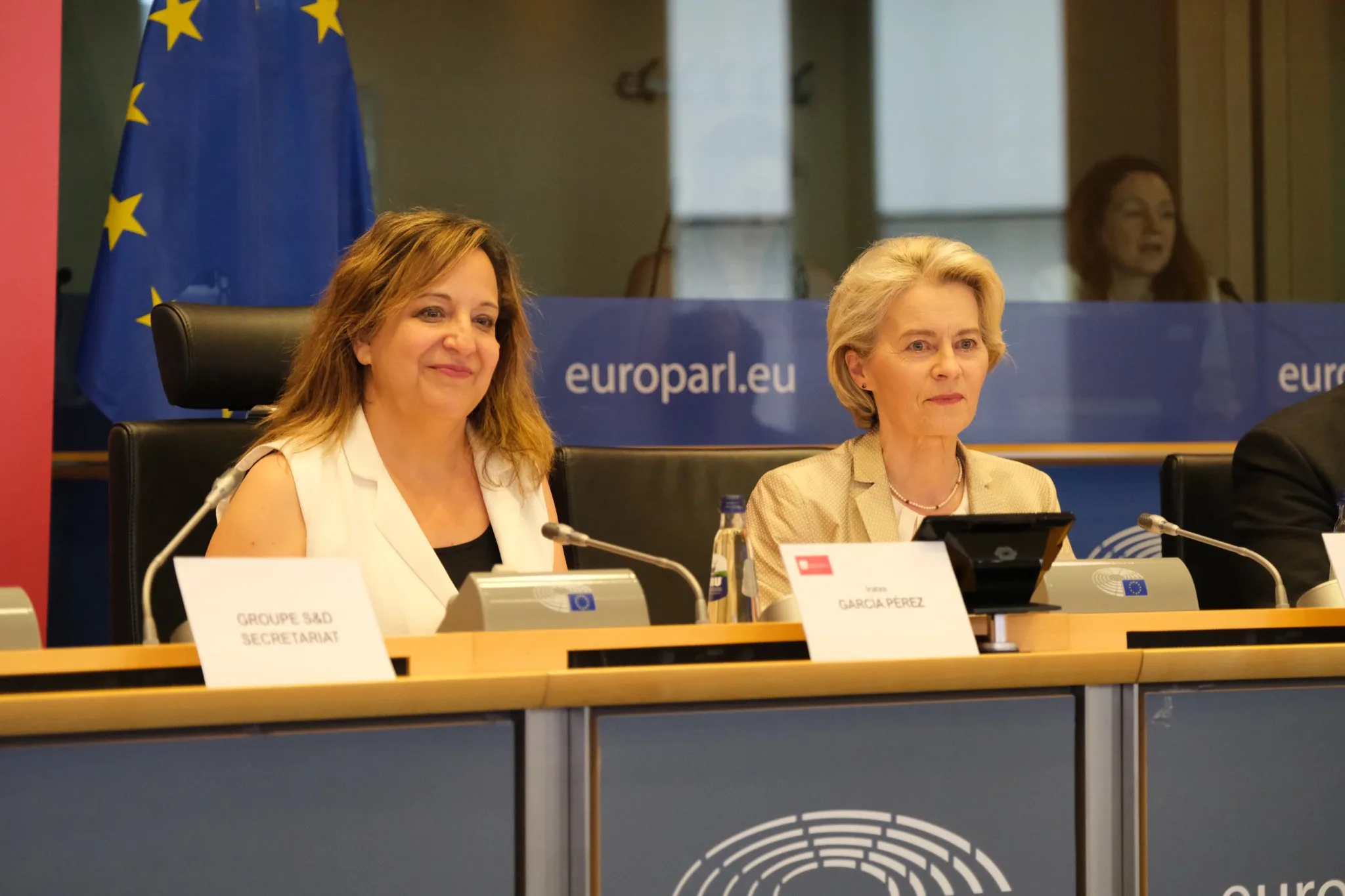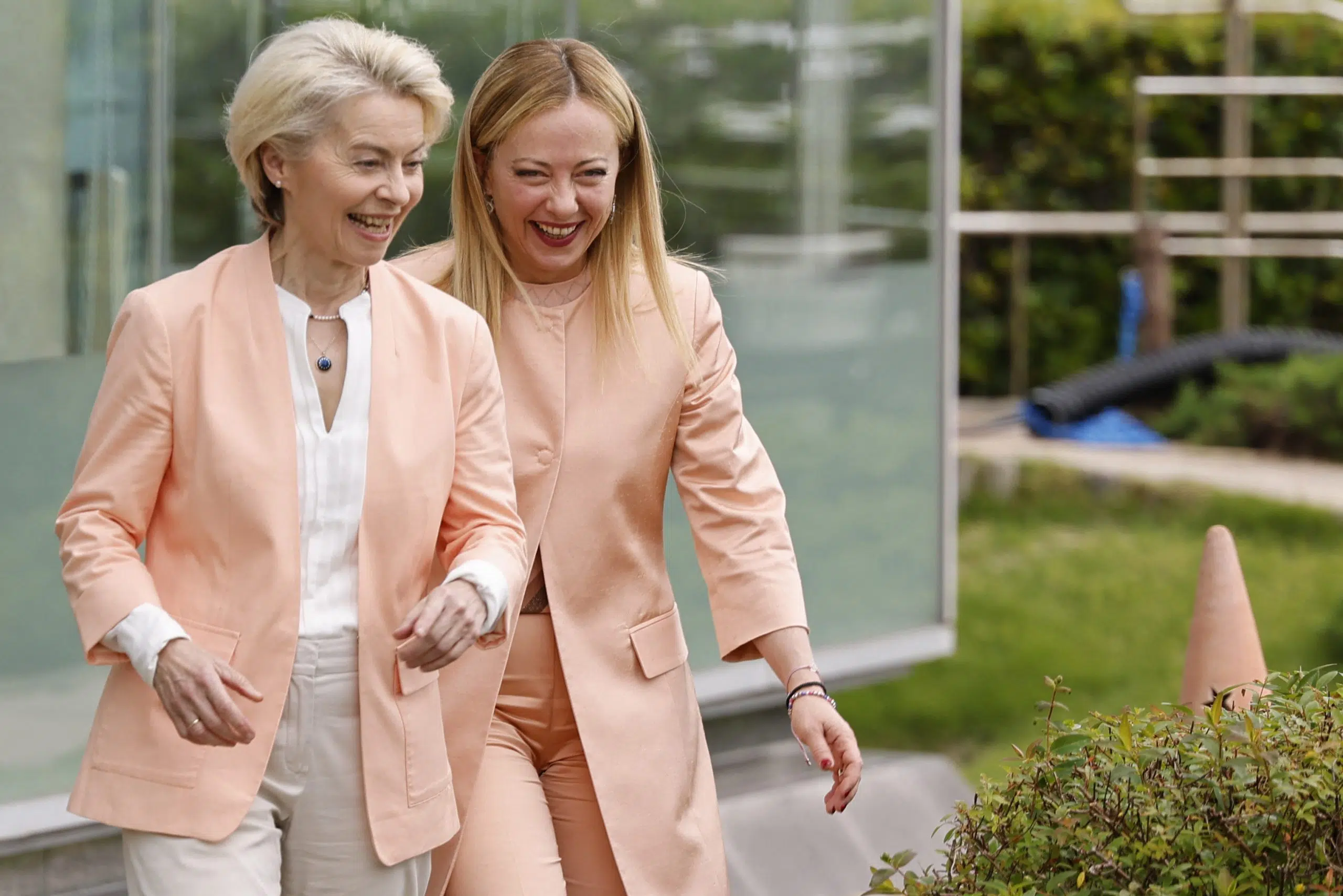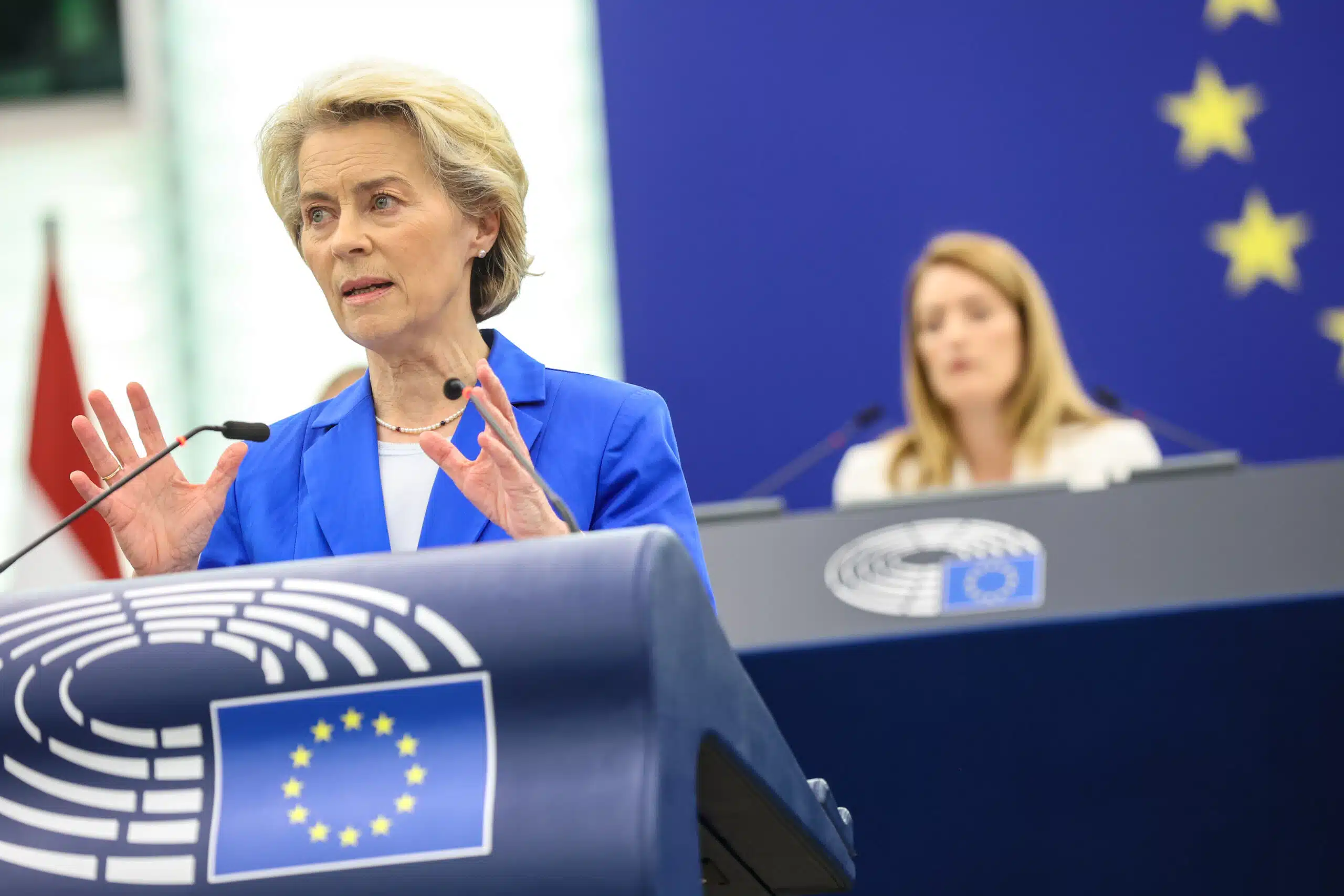Brussels – On the one hand, a red line reiterated several times by the three political groups that aspire to support von der Leyen-bis as head of the European Commission along with the European People’s Party; on the other, an ambiguity that has not been resolved yet by the candidate: Von der Leyen’s re-election revolves around whether or not she is open to the far-right group of European Conservatives and Reformists. For the Socialists, Liberals, and Greens, it is “unacceptable”; for much of the EPP is legitimate. For von der Leyen, a puzzle to be solved before the Thursday, July 18 vote.
The EU leader has already submitted to questions from the four groups that could guarantee her the 361 votes needed for re-election. Yesterday (July 9), after a hearing with her political family, the Populars, she met with the S&D group, today the Renew Liberals and the Greens. Three common preconditions emerged from these three: no backtracking on the Green Deal and, above all, no agreement with the far right.

“Our support is not a blank check,” warned S&D group leader Iratxe Garcia-Perez. For the Socialists, priorities to secure their votes for von der Leyen are also the appointment of a housing commissioner, commitment to workers’ rights, and gender equality. “We have asked for certainty on the implementation of the Green Deal, said Camilla Laureti, MEP of the PD and vice president S&D, according to whom “the path of joint investments is crucial to ensure its full implementation.”
But above all, “closure to any agreement” with ECR, Patriots (the sovereignist group with Orban, Le Pen, and Salvini) and Europe of Sovereign Nations (the new creature founded by German Afd extremists). “To seek their votes, in fact, would have a price on European integration that we are not willing to pay,” Laureti stressed. A concept reiterated by Renew’s group leader, Valerie Hayer, who called agreements with the far right “unacceptable,” and by the Greens’ co-chairs, Terry Reintke and Bas Eickhout, on the sidelines of the group’s meeting with von der Leyen. “The important thing for us is to build a majority without ECR,” they said, because the President of the European Commission “should not have the pressure of having to give something to ECR.” For the Greens, “this is the crucial political issue because we do not want far-right forces to influence the agenda of the European Union in the coming years.”

There seems to be no doubt about the cordon sanitaire towards Patriots for Europe, a group into which several delegations from the defunct Identity and Democracy (ID) have converged, and Europe of Sovereign Nations, in which the Afd expelled from ID is leading the way. Von der Leyen will not meet with them before the vote. However, the discourse changes on the Conservatives and Reformists, whose party is led by Giorgia Meloni. Because von der Leyen has already stated several times that some of the group’s delegations—including that of Fratelli d’Italia—match, in her view, the identikit needed to be part of the majority: “Pro-Europe, pro-Ukraine, pro-State of Law.”
A distinction between ECR and ID already existed, and Green leader Eickhout admitted it. “It is also true that in the European Parliament in the previous legislature, we worked on resolutions together with ECR; it was always treated differently than ID,” he told the press. However, the red line is that there must be no “structural cooperation” with Meloni and her people. The ball is in von der Leyen’s court, and she will meet next week in Strasbourg with the last two groups on her negotiating list. Monday the European Left, Tuesday the Conservatives, to which she may be closer in political affinity than the Ursula-majority groups, but which alone could not guarantee her re-election. And to whom she better not make promises.
English version by the Translation Service of Withub








